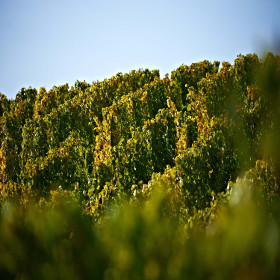Winery Krughof
We live with the wine - and we have since our early childhood. Founded in 1927, the family tradition and passion for wine & wine has been growing for more than four generations. The third generation, Hans-Walter & Gundi Flick, are currently working hand in hand with the fourth generation, Marie-Sophie Flick. Every day we sit together, try, discuss and talk shop about our wines. It is always about preserving our long family tradition and daring innovation.
In the heart of Rheinhessen you can find the small wine village Bornheim, our winery Krughof and our vineyards - and this is exactly where our quality standards begin. Out of responsibility towards us and nature and our wines, we always pay attention to careful vineyard and viticulture. Also in the cellar, gentle vinification has the highest priority: under constant observation, our wines are fermented cold, so that their fruit flavors and mineral notes are preserved.
We enjoy the diversity offered by Rheinhessen and present a wide range of different wines from a total of 20 different grape varieties to our customers. Here, the Spectrum ranges from the traditional grape varieties such as Riesling & Silvaner, Pinot varieties like Pinot Gris & Chardonnay, to aromatic exotics such as Gelber Muskateller & Sauvignon Blanc. Grape varieties like Pinot Noir, Merlot, Pinot Meunier, Dornfelder and Cabernet Sauvignon complete our rich program for red, rosé and blanc de noir.
English speaking visitors are welcome.














